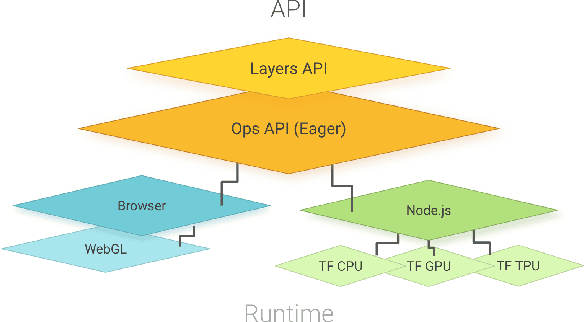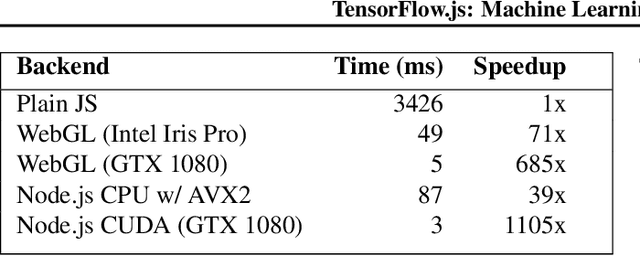Nick Kreeger
TensorFlow Lite Micro: Embedded Machine Learning on TinyML Systems
Oct 20, 2020



Abstract:Deep learning inference on embedded devices is a burgeoning field with myriad applications because tiny embedded devices are omnipresent. But we must overcome major challenges before we can benefit from this opportunity. Embedded processors are severely resource constrained. Their nearest mobile counterparts exhibit at least a 100---1,000x difference in compute capability, memory availability, and power consumption. As a result, the machine-learning (ML) models and associated ML inference framework must not only execute efficiently but also operate in a few kilobytes of memory. Also, the embedded devices' ecosystem is heavily fragmented. To maximize efficiency, system vendors often omit many features that commonly appear in mainstream systems, including dynamic memory allocation and virtual memory, that allow for cross-platform interoperability. The hardware comes in many flavors (e.g., instruction-set architecture and FPU support, or lack thereof). We introduce TensorFlow Lite Micro (TF Micro), an open-source ML inference framework for running deep-learning models on embedded systems. TF Micro tackles the efficiency requirements imposed by embedded-system resource constraints and the fragmentation challenges that make cross-platform interoperability nearly impossible. The framework adopts a unique interpreter-based approach that provides flexibility while overcoming these challenges. This paper explains the design decisions behind TF Micro and describes its implementation details. Also, we present an evaluation to demonstrate its low resource requirement and minimal run-time performance overhead.
TensorFlow.js: Machine Learning for the Web and Beyond
Jan 16, 2019



Abstract:TensorFlow.js is a library for building and executing machine learning algorithms in JavaScript. TensorFlow.js models run in a web browser and in the Node.js environment. The library is part of the TensorFlow ecosystem, providing a set of APIs that are compatible with those in Python, allowing models to be ported between the Python and JavaScript ecosystems. TensorFlow.js has empowered a new set of developers from the extensive JavaScript community to build and deploy machine learning models and enabled new classes of on-device computation. This paper describes the design, API, and implementation of TensorFlow.js, and highlights some of the impactful use cases.
 Add to Chrome
Add to Chrome Add to Firefox
Add to Firefox Add to Edge
Add to Edge